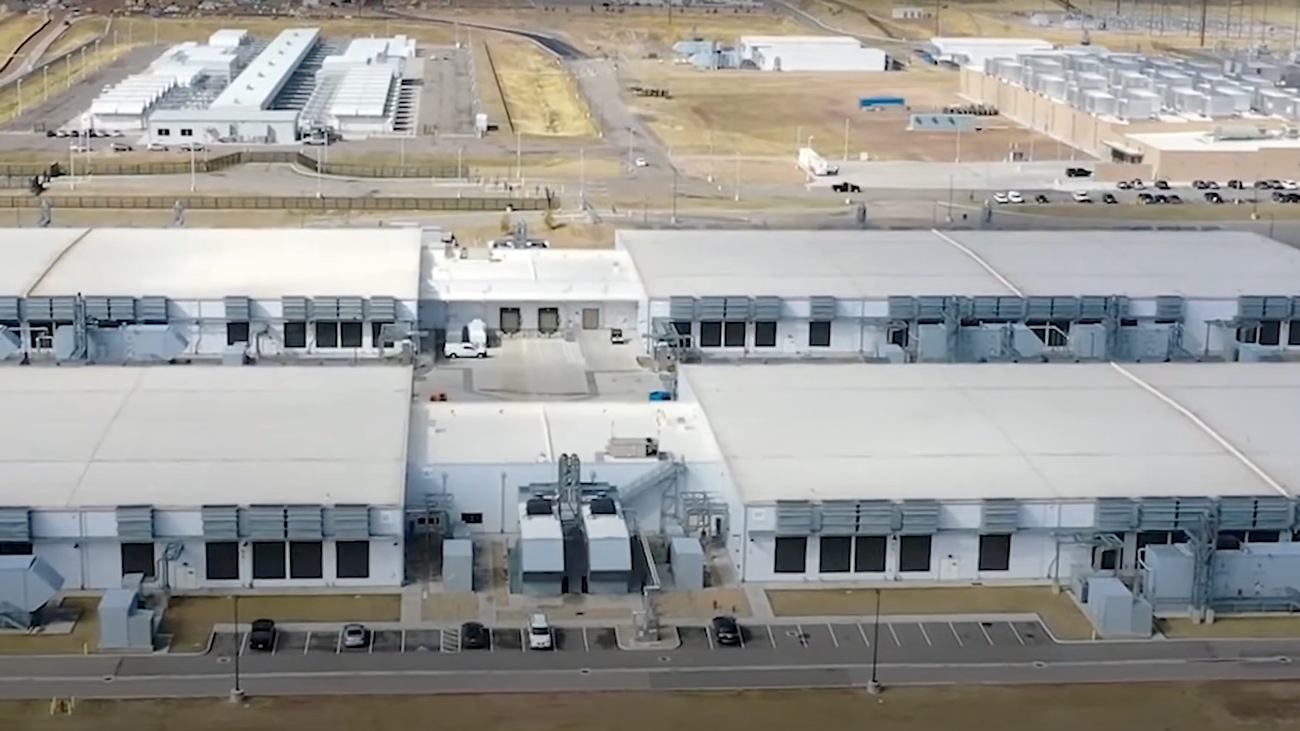Project
Stargate
Newly elected President Donald Trump has launched the "Stargate Project," which is right out of a sci-fi movie, complete with starry-eyed ambition and a dash of chutzpah. OpenAI, SoftBank Group, and Oracle are co-orchestrating this big cosmic dance of invention, which has a whopping $100 billion initial promise that can rise upto $500 billion. What is the goal? To launch America into an AI-powered future that is both fascinating and surprising.
 |
President Trump Announcing the Project on Jan 21st |
The Stargate Project is preparing to beam up a fleet of powerful AI data centers in Texas. Consider this: a $100 billion appetizer for a $500 billion feast lasting till 2029. These aren't typical server farms. No, Sir. These are quantum-laden, cloud-enabled, renewable-powered brain centers set to disrupt industries quicker than you can say "machine learning."
 |
Microsoft and OpenAI's Data Centre |
Jobs Among the Stars
On the job
front, the Stargate Project is gearing up to be a gravitational force of
economic change. Over 100,000 fresh jobs are predicted to be created, ranging
from blue-collar IT workers to white-collar AI geniuses. It's a full-fledged
labor market revamp, complete with upskilling programs, AI boot camps, and
machine learning hackathons. The plan pledges to build an army of innovators
ready for a world dominated by algorithms and digital brilliance.
A Galactic AI Race
SoftBank's
ever-visionary CEO Masayoshi Son leads this galactic quest, supported by a
constellation of colleagues including Nvidia, Microsoft, and Arm. What's their
mission? To put America in the lead in the global AI race, not merely by
participating, but by setting the rules of the game.
 |
| The CEO's of The Companies leading Stargate |
But hold on
to your hats, for Trump's Stargate aspirations extend beyond economic
statistics and server racks. His announcement hinted to moonshot aspirations,
such as using AI to cure cancer and Alzheimer's. Ambitious? Yes. Audacious?
Definitely. Possible? With the combination of big data and AI's relentless
march, these once-impossible visions are now tantalizingly close to becoming a
reality.
Portal to Tomorrow
In typical
Trumpian fashion, the Stargate Project has been compared to the Manhattan
Project—minus
the gloomy connotations. Trump declared it a "portal to the future,"
envisioning AI impacting every aspect of American life. The naysayers may
giggle over a cocktail, but the enthusiasm driving this project is nearly
contagious.
Dreaming Beyond the Stars
True to its
sci-fi moniker, the Stargate Project aims to boldly explore new terrain.
Whether it's anticipating climate trends, pioneering new businesses, or pushing
the limits of human potential, this project is aiming for the stars—literally and metaphorically.
But let's
not overlook the crux of the matter: Stargate is more than simply cold
equipment and hot data. It is about dreams. It's about venturing into the
unknown and daring to envisage a future full with promise. Because, like the
stars, invention shines best when it is just beyond grasp. Buckle up, America.
This intergalactic journey is shaping up to be nothing short of epic.
Unpacking the Stargate
From a
political standpoint, this effort promotes the United States as an AI leader,
but it may result in more geopolitical competition, particularly with countries
like China. On an ecological level, while the data centers intend to rely on
renewable energy, the sheer size of activities may strain local resources.
Legally, the ethical deployment of AI—from
privacy issues to algorithmic bias—remains
an enigmatic region that must be negotiated with caution.
The Stargate
Project, while full of potential, is a Pandora's box of possibilities. Its
success depends not just on technological advances, but also on tackling the
larger societal, economic, and ethical issues it raises. If handled correctly,
it has the potential to redefine progress; if not, it may leave us stargazing.
Nice Article !
ReplyDeleteAppreciate It!
Delete